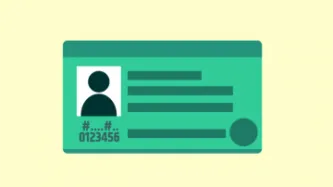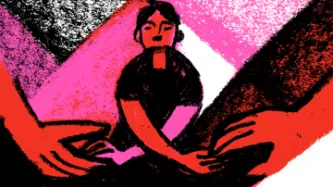Search
Content type: Examples
FullScreen Research claims that in the competitive German food delivery market, Lieferando uses automation to monitor its employees and that Wolt violates labour laws by paying couriers in cash and employing them illegally A former supervisor with Lieferando says that the system flags up abnormalities for a team of watching agents, who see each courier's exact location and are supposed to ask drivers the reason for delays. Lieferando denies that it illegally controls drivers'…
Content type: Examples
German data protection authorities have ruled that the use of Microsoft Office 365 in schools is not compliant with GDPR, citing a lack of transparency around how and where Microsoft processes and stores student data as well as the potential for third-party access. German federal and state data protection authorities have been looking at how to improve Office 365 for two years but deems changes Microsoft has made insufficient to bring the software into compliance.
https://www.computerweekly.…
Content type: Case Study
This piece was written by Privacy International, based on publicly available information and on research by our partners at Hiperderecho
Overview
The Documento Nacional de Identidad (DNI) is the personal ID card recognised by the Peruvian State in any situation where a person might have to identify themselves, be it in an administrative, judicial, civil, or commercial context. The DNI also grants its holder the right to vote.
The DNI issuing and overseeing body is the Registro Nacional de…
Content type: Examples
While traditional media sought to criminalize the widespread November 2020 protests in Peru following the Congressional ouster of President Vizcarra, witnesses disseminated videos and photographs of police abuse on social networks. In the fear and uncertainty, many myths also circulated. In Peru, citizens have the right to refuse to allow police to check their cellphones unless they have a court order; slowed or absent wireless connections may simply be due to overload; as public officials,…
Content type: Examples
On November 9, 2020, after a year of escalating tensions, Peruvian president Martín Vizcarra was impeached on the grounds of "moral incapacity" by lawmakers threatened by his anti-corruption investigations and the policy reform he led. The street protests that followed all over the country were coordinated via Instagram, Twitter, WhatsApp, and TikTok (#MerinoNoMeRepresenta) by hundreds of newly-created small, decentralised organisations. The march on November 14 is thought to be the largest in…
Content type: Examples
Peruvian police have used force, arbitrary arrests, undercover infiltrators, tear gas, and forced disappearance against marchers protesting the removal of president Martín Vizcarra. Three protesters have been killed, more than 60 have disappeared, and hundreds have been injured. While the traditional media has either ignored the protests or depicted them as criminal, social media and the internet have been crucial in documenting police abuses via shared images and video. Police have begun using…
Content type: Video
You can listen and subscribe to the podcast where ever you normally find your podcasts:
Spotify
Apple podcasts
Google podcasts
Castbox
Overcast
Pocket Casts
Peertube
Youtube
Stitcher
And more...
And support PI's work here: support.privacyinternational.org
Content type: Examples
Corruption scandals have added to Latin America’s challenges in dealing with the coronavirus. In Ecuador, prosecutors identified a criminal ring that colluded with health officials to sell body bags to hospitals at 13 times the normal price, and many others are accused of price-gouging for other medical supplies.
The former Bolivian health minister is under house arrest awaiting trial on corruption charges, government officials in seven Brazilian states are under investigation for misusing…
Content type: Examples
Germany’s contact tracing system is thought to have been critical in controlling the COVID-19 outbreak, especially given superspreader events such as infections in meat packing plants. Each of Germany’s 16 federal states is responsible for health, and together with the national Robert Koch Institute they support authorities at city or council level, who are responsible for outbreak investigation and management, including contact tracing.
The country dubbed COVID-19 a notifiable disease early,…
Content type: Examples
A study describes the data transmitted to backend servers by the Google/Apple based contact tracing (GAEN) apps in use in Germany, Italy, Switzerland, Austria, and Denmark and finds that the health authority client apps are generally well-behaved from a privacy point of view, although the Irish, Polish, Danish, and Latvian apps could be improved in this respect. However, the study also finds that the Google Play Services component of the apps contacts Google servers as often as every 20 minutes…
Content type: Case Study
The Peruvian government has a history of collaboration with the private sector in developing technology with the alleged purpose of providing greater security to citizens. The most recent example, the smartphone application "Peru En Tus Manos" launched in the context of the Covid-19 crisis, has been developed in a similar fashion and currently collects geolocation data on more than a million users. Although Peru has a proper legal framework for public private partnerships, developments are…
Content type: Examples
The German health minister, Jens Spahn, said the country required advice from the country’s ethics council before it could use the millions of antibody tests it had procured from the Swiss pharmaceutical company Roche to help determine how freely people could move around the country. Spahn cited the risk that people would try to get themselves infected if immunity passports appeared to promise greater freedom.
https://www.reuters.com/article/health-coronavirus-germany-antibodies/armed-with-…
Content type: Examples
At the end of March, jointly organised by the Robert Koch Institute (Germany’s public health body), the German Centre for Infection Research, the Institute for Virology at Berlin’s Charite hospital, and blood donation services, researchers planned to begin conducting blood tests among the general public in order to determine how many people test positive for antibodies to the coronavirus. Gerard Krause, head of epidemiology at the Helmholtz Centre for Infection Research, and Brauinschweig,…
Content type: Examples
Germany’s “Corona-Warn” contact tracing app amassed 6.5 million users (7.8% of the German population) in the first 24 hours after its June 16 launch despite setbacks that included disputes over data privacy and functionality. The app was developed in six weeks by a team of developers and engineers from Deutcsche Telekom and SAP and is built on the Apple-Google notification framework. In a poll conducted by ARD around the time of the app’s launch, 42% of Germans said they would use the app,…
Content type: Examples
It's been two months since the launch of "Perú en us manos", the mobile app promoted by the Peruvian government amidst the Covid-19 pandemic. Until now the app did not accomplish the ambitious goals it set out to.
On its first month the app had detected 1400 risk zones while there where already 36,000 confirmed infection cases. There is little transparency on how those risk zones are estimated. Developers of the app state that only one fifth of the data provided by the Health Ministry is clean…
Content type: Examples
Local health authorities in Germany have relied on human contact tracers since the country confirmed its first COVID-19 cases early in 2020, and say that doing so has helped the country keep its death rate comparatively low even with a less restrictive lockdown than many other countries. Germany aims to have 16,000 contract tracers overall, or five for every 25,000 people. Tracing involves phoning each newly-diagnosed patient and asking their movements; those who have been in close contact for…
Content type: Examples
Our partners from Hiperderecho in Peru proposed 15 measures to improve the COVID-19 app that the Peruvian Government is rolling out in the country (in Spanish).
Link: https://hiperderecho.org/2020/04/quince-propuestas-para-mejorar-la-aplicacion-del-gobierno-del-covid-19/
Content type: Examples
Three days after announcing Germany would adopt the centralised Pan-European Privacy-Preserving Proximity Tracing (PEPP-PT) standard for contact tracing, the country's chancellery minister Helge Braun and health minister Jens Spahn announced they would instead use the decentralised approach backed by Apple, Google, and other European countries. While both standards rely on Bluetooth connections between nearby phones, PEPP-PT would have required Apple's cooperation to implement, and the company…
Content type: Examples
Eight days after instituting a gender-based quarantine schedule, Peruvian president Martin Vizcarra cancelled the measure two days before it was due to end. It had been met with a backlash from LGBTQ+ activists, who feared trans and binary people would face increasing street harassment from police. However, it also proved that because women do a disproportionate share of domestic work, gender separation forced them to gather in large groups on the days they were allowed out. Instead…
Content type: Examples
On April 2 Peruvian president Martín Vizcarra issued a controversial rule that men and women must observe quarantine on different days: men may leave their homes on Mondays, Wednesdays, and Fridays, while women may leave only on Tuesdays, Thursdays, and Saturdays. No one is allowed out on Sundays. Some critics are concerned that the plan will lead to disproportionate harassment of LGBTQ+ people because the police are instructed to stop people based on gender presentation. The purpose, the…
Content type: Examples
Germany's federal agency responsible for disease control and prevention, the Robert Koch Institute, has teamed up with the health technology start-up Thryve to develop an app called Corona-Datenspende ("data donation") that works with a variety of smartwatches and fitness wristbands. The app is designed to use the device's sensors to collect user data, and includes algorithms to it to spot symptoms linked to COVID-19 and help predict the spread and containment of the virus. More than 50,000…
Content type: Examples
On March 24 the German Bundestag passed a comprehensive amendment to the Infection Protection Act that authorises the Federal Ministry of Health to implement measures for medical care without the consent of the Federal Council. These include the ability to impose curfews and travel restrictions, override patent protection for medical products, and issue ordinances creating other exceptions to the law. The Federal Data Protection Commissioner criticised the proposals because he doubted whether…
Content type: Examples
Researchers at Germany's Robert Koch Institute and Fraunhofer Heinrich Hertz Institute are working on an app that uses Bluetooth connections between smartphones and is compliant with GDPR to anonymously save the distance and duration of contact between people on the smartphone to make it possible to digitally reconstruct infection chains. The idea is being copied from Singapore's TraceTogether app, which detects other users who have also installed the app. If someone tests positive, they can…
Content type: Examples
On March 20, the Peruvian government introduced a website where citizens can retrieve the results of tests for COVID-19. The site asks only for the patient to fill in their National ID number and a simple captcha, making it easy for unauthorised parties to access others' results and put people at risk of exploitation and discrimination.
Source: https://saludconlupa.com/noticias/peru-debilidades-de-plataforma-del-ministerio-de-salud-pueden-exponer-informacion-clinica-de-pacientes-covid-19…
Content type: Examples
On March 19, the Peruvian government instituted a daily curfew from 8pm to 5am, which applies to all but those working to provide essential services. Members of the print and broadcast press must carry their special permits, badges, and ID cards, and those requiring urgent medical care are allowed to travel. Private citizens are no longer allowed to drive their own cars at any time except where necessary for the above groups. The law is being enforced by the police and armed forces.
Sources:…
Content type: Examples
On March 17, after declaring a state of emergency an ordering everyone to stay at home, the Peruvian government began requiring a special authorisation for street travel. Workers in a the categories specified in Article 4 of the Supreme Decree must obtain the authorisation via a government website. The authorisation process involves cross-referencing with other personal databases to check the accuracy and validity of each application.
Source: https://andina.pe/ingles/noticia-peru-key-…
Content type: Examples
On March 14, the Peruvian government set up a website for individuals to check their symptoms so they can be directed towards sources of help. The web form asks for ID number, phone, email and home address.
Source: https://www.gob.pe/coronavirus
Writer: Peruvian government
Publication: Peruvian government
Content type: Examples
Under a new protocol, international passengers arriving at Lime's Jorge Chavez International Airport or by ship at Callao Port, is referred to medical staff if they are arriving from places with confirmed cases, even if they are asymptomatic. Passengers who show symptoms in transit are transferred to isolation areas, where they receive care. The passengers are also required to supply personal information so they can be surveilled over the following days.
Source: https://andina.pe/ingles/…
Content type: Examples
Peru has suspended constitutional rights such as freedom of movement and assembly, although the government has guaranteed the operation of supermarkets, pharmacies, banks, basic services, and the transportation of merchandise.
Source: https://www.reuters.com/article/us-health-coronavirus-latam-idUSKBN2133BY
Content type: Examples
The German mobile operator Deutsche Telekom announced in a press conference on RKI Live that it had passed on, anonymised, its users' movement data to the Robert-Koch Institute to study the extent to which the population would follow the government's restrictions. RKI president Lothar Wieler said this data is also available for purchase, but was given to RKI at no charge.
Source: https://frask.de/coronavirus-deutscher-mobilfunkbetreiber-gibt-bewegungsdaten-weiter/


